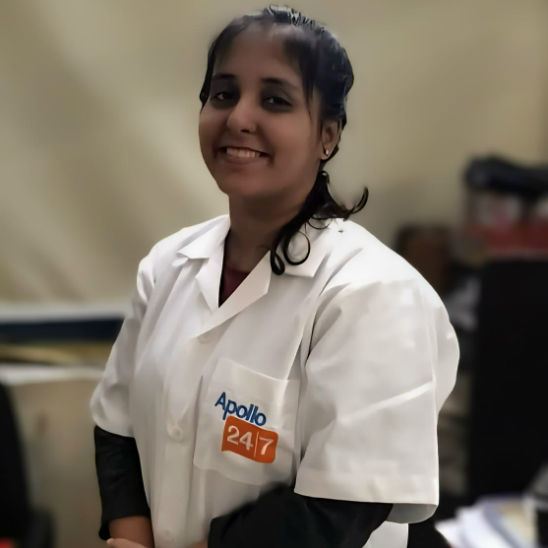How To Increase Monocytes?
Discover effective ways to increase monocyte levels through proper nutrition, lifestyle adjustments, and medical support. Learn what low monocytes indicate and how to restore immune balance.


Introduction
Monocytes are a type of white blood cell that play a crucial role in your immune system. They help fight infections, remove dead or damaged cells, and support overall immunity. If your monocyte levels are low, your body may struggle to defend itself against illnesses.
The good news is that you can naturally boost your monocyte count through diet, lifestyle changes, and healthy habits. In this article, we’ll explore simple and effective ways to increase monocytes and strengthen your immune system.
What Are Monocytes?
Monocytes are a key part of your immune system. They are produced in the bone marrow and circulate in your blood, ready to attack bacteria, viruses, and other harmful invaders. When they detect an infection, they travel to affected tissues and transform into macrophages or dendritic cells, which help destroy pathogens and activate other immune responses.
Low monocyte levels (monocytopenia) can make you more prone to infections, slow wound healing, and weaken your overall immunity.
Symptoms of Low Monocyte Levels
If your monocytes are low, you may experience:
Frequent infections (colds, flu, bacterial infections)
Slow healing of wounds
Fatigue and weakness
Unexplained weight loss
Recurrent fevers
If you notice these symptoms, consult a doctor for a blood test to check your monocyte levels.
Causes of Low Monocyte Count
Several factors can lead to decreased monocytes, including:
Nutritional deficiencies (Vitamin B12, folate, iron, zinc)
Chronic stress (weakens immune function)
Bone marrow disorders (leukemia, aplastic anemia)
Autoimmune diseases (lupus, rheumatoid arthritis)
Certain medications (chemotherapy, corticosteroids)
Viral infections (HIV, hepatitis)
Identifying the underlying cause is essential for proper treatment.
Consult Top General Physicians
How to Increase Monocytes Naturally?
Increasing monocytes naturally involves supporting your immune system through healthy lifestyle choices, balanced nutrition, and stress management.
1. Eat a Nutrient-Rich Diet
Your diet plays a major role in immune health. Focus on foods that support white blood cell production:
Vitamin B12 & Folate: Found in eggs, dairy, leafy greens, and fortified cereals.
Iron: Red meat, spinach, lentils, and pumpkin seeds.
Zinc: Oysters, nuts, seeds, and whole grains.
Vitamin C: Citrus fruits, bell peppers, and broccoli.
Protein: Lean meats, beans, tofu, and fish.
2. Manage Stress
Chronic stress lowers immune function and reduces monocyte production. Try:
Meditation or deep breathing exercises
Regular physical activity (yoga, walking)
Getting enough sleep (7-9 hours per night)
3. Exercise Regularly
Moderate exercise boosts circulation and immune cell production. Aim for:
30 minutes of walking, swimming, or cycling daily
Strength training 2-3 times a week
4. Stay Hydrated
Water helps transport nutrients and supports immune function. Drink at least 8-10 glasses daily.
5. Avoid Smoking & Excessive Alcohol
Both weaken immunity and reduce white blood cell counts.
6. Get Enough Sleep
Sleep is essential for immune cell regeneration. Maintain a consistent sleep schedule.
7. Consider Supplements (If Needed)
If you have deficiencies, your doctor may recommend:
Vitamin B12 or folate supplements
Iron or zinc supplements
Probiotics (for gut health, which affects immunity)
Always consult a doctor before starting any supplements.
When to See a Doctor?
If you experience frequent infections, extreme fatigue, or unexplained symptoms, consult a healthcare provider. A Complete Blood Count (CBC) test can check your monocyte levels and identify any underlying conditions.
If needed, you can book a consultation or schedule a blood test through Apollo 24|7 for expert guidance.
Conclusion
Low monocyte levels can weaken your immune system, but simple lifestyle changes- like eating a balanced diet, managing stress, and staying active- can help boost them naturally. If symptoms persist, seek medical advice to rule out serious conditions.
By taking care of your overall health, you can strengthen your immune system and keep infections at bay. Stay healthy and proactive!
Book an appointment with Apollo 24|7 today and get expert guidance on boosting your immunity. Stay safe and stay healthy!
Consult Top General Physicians
Consult Top General Physicians

Dr. Vivek D
General Physician
4 Years • MBBS
Bengaluru
PRESTIGE SHANTHINIKETAN - SOCIETY CLINIC, Bengaluru

Dr Syed Mateen Pasha
General Physician
2 Years • MBBS
Bengaluru
PRESTIGE SHANTHINIKETAN - SOCIETY CLINIC, Bengaluru

Dr. Anand Ravi
General Physician
2 Years • MBBS
Bengaluru
PRESTIGE SHANTHINIKETAN - SOCIETY CLINIC, Bengaluru

Dr Aakash Andgi
General Physician/ Internal Medicine Specialist
9 Years • MBBS MD
Bengaluru
Apollo Clinic, JP nagar, Bengaluru

Dr. Ashita Kuruvilla
General Physician/ Internal Medicine Specialist
7 Years • MBBS
East Midnapore
VIVEKANANDA SEBA SADAN, East Midnapore
Consult Top General Physicians

Dr. Vivek D
General Physician
4 Years • MBBS
Bengaluru
PRESTIGE SHANTHINIKETAN - SOCIETY CLINIC, Bengaluru

Dr Syed Mateen Pasha
General Physician
2 Years • MBBS
Bengaluru
PRESTIGE SHANTHINIKETAN - SOCIETY CLINIC, Bengaluru

Dr. Anand Ravi
General Physician
2 Years • MBBS
Bengaluru
PRESTIGE SHANTHINIKETAN - SOCIETY CLINIC, Bengaluru

Dr Aakash Andgi
General Physician/ Internal Medicine Specialist
9 Years • MBBS MD
Bengaluru
Apollo Clinic, JP nagar, Bengaluru

Dr. Ashita Kuruvilla
General Physician/ Internal Medicine Specialist
7 Years • MBBS
East Midnapore
VIVEKANANDA SEBA SADAN, East Midnapore